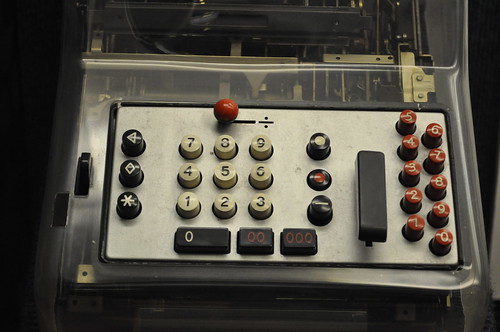In Europe, stock markets and other trading floors are open from 8 am to 4:30 pm, one of the longest trading days in the world. Now, two “professional bodies representing traders, the Association for Financial Markets in Europe (AFME) and the Investment Association (IA), have asked European exchanges to shorten trading hours by 90 minutes” per day.
Like teachers, stockbrokers and analysts are expected to put in substantial time preparing for the day; as a result, a day can easily stretch to ten hours or more. The AFME (pdf) notes that
Staff are habitually doing a ten hour working session sat at their desk in an industry where lunch breaks are often still frowned upon. This is not conducive to good mental and physical health. We would note that no firm that we are aware of prevents individuals from leaving their desk, but the prevailing and pervasive culture across the industry is that traders are at their desk for the whole trading day.
The working day is further extended since most traders arrive at least one hour before the market opens, to prepare, and stay at least one hour after the close in order to book trades, assist operations and look at after-market secondary offerings. The IA estimates that the average trader works a 12 hour day starting at 6.30am, representing a 60 hour week.
So why would a shorter day be good? They argue that it would bring several benefits.
Some of them are pretty familiar. For one thing, “a culture of long hours impacted traders’ mental health and wellbeing.” This line of argument will come as no surprise to anyone who’s followed working hours reductions in other high-pressure environments, like health care or restaurants.
There’s also the professional diversity argument: the long hours work against hiring women, and limit the professional lives of anyone with family obligations. “A 2019 survey that covered 129 buyside heads of trading globally reported that the best way to attract and retain more gender diversity in trading,” the AFME report says, “is to provide a better work / life balance. Employees are increasingly looking for more work / life balance when they are looking for jobs.”
All familiar stuff. But here’s where it gets fascinating.
As one article notes, “The first hour of trading often attracts little liquidity and subsequently is a more costly time to trade, while the final hour attracts around 35% of total daily volume. So a shortened day is a win-win for both traders and trading companies.”
The AFME explains,
The closing auction now consistently represents well over 20% of the daily volume in Europe. To emphasise the shift, around 35% of volume trades in the last hour and that increases to around 50% in the last two and a half hours.
The evidence of a distortion is not just apparent in the traded volumes, but also the actual cost of trading.
The difference in spreads, volatility, and market liquidity in the AM session vs. the PM session result in material differences to the cost of trading.
For a small 1% Average Daily Volume (ADV) trade on the FTSE 100 Index it would cost 4.4bps to execute the trade in the last 30 minutes of the day (excluding the closing auction), whereas the same trade in the first 30 minutes of the day would cost nearly three times more at 11.4bps.
Traders in the London market indeed tell us that the first hour is the most expensive time of day to trade. They consider that this is caused by the wider spreads and lack of liquidity. This cost differential further perpetuates the migration of liquidity to later in the day and a degradation in morning liquidity.
For comparison, in the US market, which is shorter in duration by 2 hours and turns over approximately 6X the volume of the European markets combined, there is still a cheaper cost of trading in the afternoon where liquidity is higher and spreads/volatility lower, but the differential in cost to the morning session is much smaller. This demonstrates greater stability in liquidity conditions over the day in the US market.
Because there’s not as much activity in the first hour, and trading is more expensive, eliminating it would allow traders more time to study charts and do other stuff, and cutting the last half hour would encourage more trading earlier in the day. In other words, “a shorter day will centralise liquidity, facilitating more stable trading conditions and price discovery over the day.”
A shorter trading day will be a more efficient trading day– not just “efficient” in the sense of humans working better, but efficient in the market sense of discovering prices and supporting trading.
In other industries, it’s often the case that when you go to a 4-day week, there’s one day that’s really quiet and not much happens: one direct marketing firm found that its sales people made 90% of their sales by Thursday, and in PR Friday is known as a dead day. But I think this is the first example I’ve seen of a proposal to shorten the workday that argues that a shorter day will make markets themselves more efficient.
It should also be noted that, as in other industries, technology helps make a shorter workday possible:
Technology has advanced rapidly and the speed of execution has improved exponentially since the original market hours were established.
Firms advanced trading algorithms are now able to trade in thousandths of a second across multiple venues. The operational processes supporting trading have also evolved significantly, as such it is no longer necessary to have such an extended trading day. For example, the recent 90 minute outage at the London Stock Exchange (LSE) on 16 August 2019 did not result in noticeably less volume going through on that day.
There is other innovation too – for example, the LSE now offers a specific segment to provide investors with the opportunity to reduce time zone risk whilst accessing 6 exposure to global securities.
Finally, a harmonisation of market hours across Europe would address any concerns about liquidity shifting from any one market to another as a result of this change. It’s important that all the major markets in Europe move their trading hours together. Liquidity would not drift from one market to another as European markets would be moving their opening hours in concert.
The London Stock Exchange says they’ll think about it.




